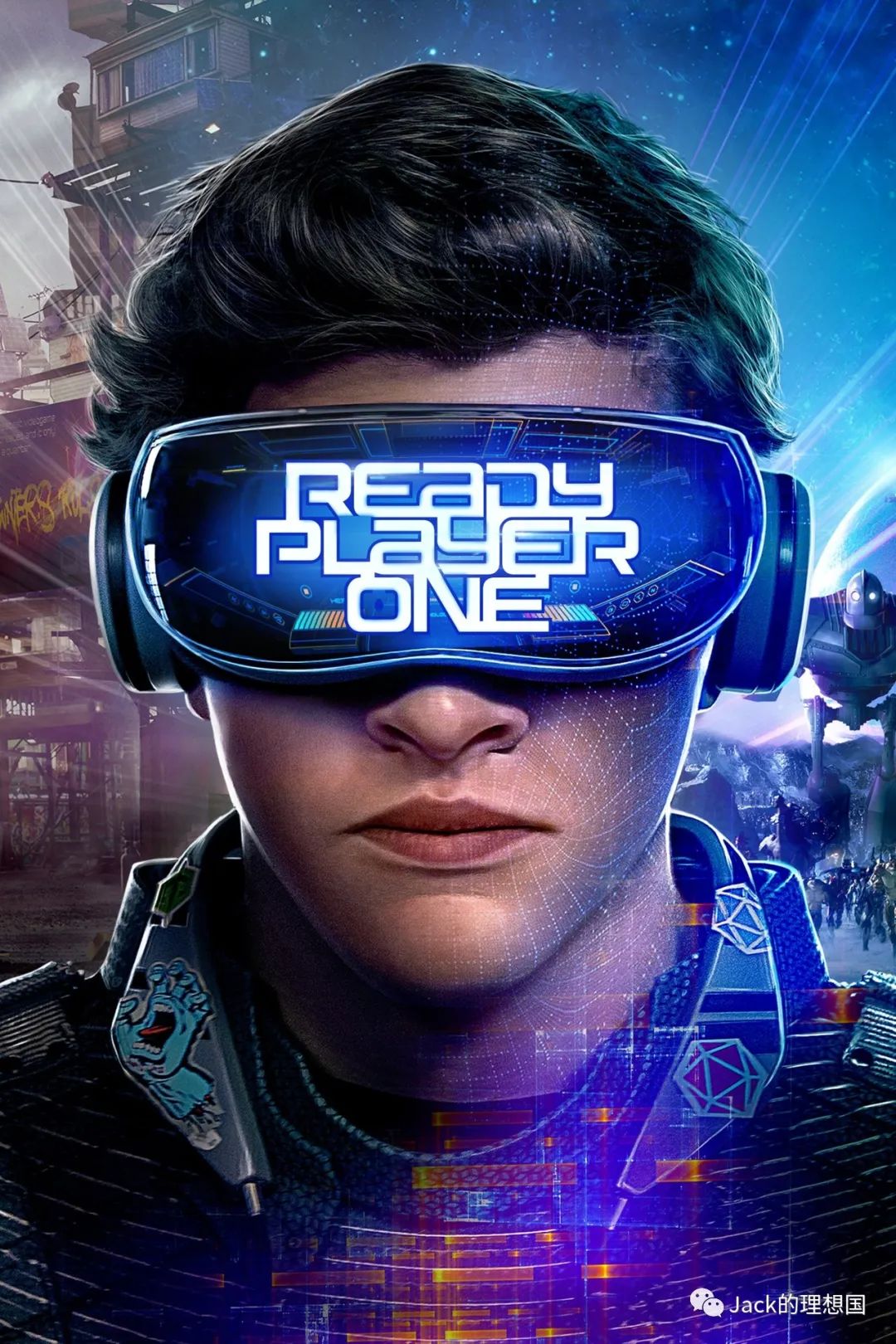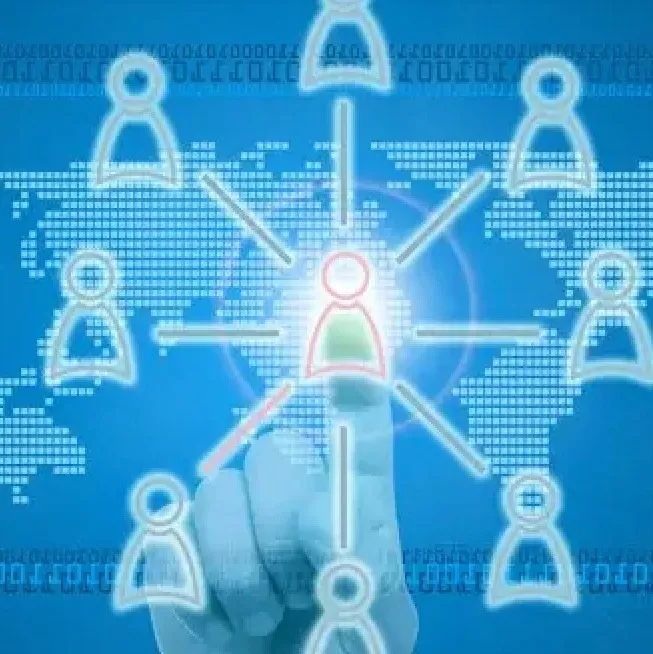The Internet World 互联网世界

Ready Player One is a film that discusses the wonders and crises looming in an internet world. Though it is by genre, science fiction, the film does depict a future that can very likely occur in the real world. From this film, this article will explore some critical topics worth considering in the present moment because they can be relevant in the near future. The structure of the essay consists of phases of the process of wandering deeper into the internet world and shall find out the characteristics and implications of each phase.
Phase 1: Entering “the Asylum”
The most explicit message or topic that the film attempts to convey through the setting is that the internet has turned into an asylum for many people to escape reality. The internet world seems like paradise compared to reality's unbearable, “torturous,” dull aspects. It is precisely like fantasy, where you live out your wildest dreams, where the world is far more colorful and exciting, pricking every sensitive nerve a person possesses. Thus, why not stay in this intriguing, virtual world that looks more like reality?
I believe, in the future, the internet will act out of its role as a mental asylum even more, especially if the problems that are plaguing the status quo are not effectively solved. If everywhere there is warfare, if the energy crisis or climate change turns unavertable, if economies keep suffering from recessions, then there are few reasons to believe people will not resort to the internet to accompany them mentally. As technologies improve, what will bother people in the future will no longer be physical diseases anymore. Instead, mental illness, depression, and the belief that real life has no meaning anymore are the main challenges. The internet would provide at least some short-term solutions to these issues. Most people would not think about long-term solutions, so these short-term solutions would just suffice and satisfy the populace.
What gives the internet its remarkable ability to be this massive mental asylum is its power to take the good from reality and tweak the bad to make it good. For example, human interaction is generally regarded as a positive force in the real world. People accept it and view it as one of the reasons to live. The internet takes this brilliant aspect of reality and puts it into the virtual world so that people can continue to enjoy this positive force. That exactly partially explains why popular games today all involve multi-player modes, because real-world players discover, with delight, that they can still carry on human interaction within this virtuality.
What is more impressive and effective is the internet’s ability to alter many of the bad, distressing aspects of reality and turn them into those ideally preferred by the human brain. Two aspects that can demonstrate this ability are explained below. First, many things are relatively more effortless in the virtual world than in the real environment. In reality, one has to work hard to tackle all the challenges each day; life can be torture. Yet, in virtuality, one does not need to fret so much about the agonies of reality anymore. One does not need to pound as hard on the challenges and would live with relatively greater physical ease. This change can occur thanks to the power of the internet to simplify difficulties and provide unlimited sources of essential pleasure. For the second aspect, many individuals, in reality, complain that each day they live out is almost identical and that the meaning of life gradually decreases with each monotonous day. The virtual world recognizes this complaint and tweaks it to ensure that each day contains something new and extremely exciting. In many games, you do very different and exhilarating daily quests. You watch the riveting plot turn up and down in many TV shows with each fresh daily episode. This shockingly powerful feature of the internet makes sure that people’s mentalities in the virtual environment do not suffer as much as in reality and that all can seek the so-called “happiness.”
Phase 2: Double Identities
Upon entering the asylum of the internet world, people are either inclined or compelled to create another identity. This identity can be a game character, a person with a different name on social media platforms, etc. At first, one might feel that this virtual identity is subordinate to the true identity in reality. Perhaps, in the present, most people would argue that they do not believe that their internet identity is somehow more important than who they truly are. However, as one lives deeper into virtuality and begins to appreciate the internet world's wonders, this identity situation begins to change.
It can be challenging to reverse the trend when the situation changes. First, one would spend more time and effort living out their virtual character. For example, in the roughly 16 hours that one stays awake, they increase their time spent in a game, playing their game identity, or getting increasingly immersed in some social media account. This process happens more gradually and can take some time. Finally, after the person devotes more time and effort to their virtual identity, it is natural for them to develop a stronger bond or affection towards it and pull away from the bond or respect towards their real identity.
Then, things take a deeper turn. The online identity adheres to the person more closely and begins to outcompete the real identity in terms of importance. The person can lose some memories of the real identity or regard their real identity as troublesome and unpleasant. And if the trend continues while applying itself to the masses, then the natural consequence would be that the majority of the people in the internet world would lose their real identities. People would not refer to each other or think of each other with their respective real identities and instead completely live out their virtual characters. So either they would not be able to, or do not want to, go back to reality. The internet world is too “beautiful” a place to thrive in. Most people are “imprisoned” in virtuality by this stage.
Phase 3: Double Deprivation
By the third phase, most people are stuck in the virtual setting. They do not desire, at least in the short term, to return to reality. As this “journey” continues to develop, the double deprivation of value occurs in both environments.
First, staying continuously in the virtual world leads to the deprivation of value in the real one. As explained in the last phase, when a person decides to immerse themselves in the virtual setting, they would eventually forget or disregard their true identities. In some respect, in the short run, the person cannot re-enter reality and thus cannot seek meaning or value in the real setting because the real identity is already gone.
The more intriguing question is, it is possible to lose value in the real world, but is it possible to retain value in the internet world? Would an " imprisoned " person eventually find meaning or value in the internet world? It is possible to seek happiness in the short term and thus some meaning. In the long term, though, it is almost impossible. One of the notable reasons people regard the internet as the source of happiness or even value in life is that the entertainment resources especially display the most exciting or colorful parts of reality. The keyword here is “reality.” Many happiness-providing virtual sources are inspired by reality; they take from the iridescent facets of reality. As mentioned before, as the internet keeps advancing, most people will leave reality and be sucked into virtuality. Now, who would take from and be inspired by reality? Would there be enough entertainers to serve the entertained? No. When reality turns forgotten, virtuality would gradually become meaningless because the source of value is gone.
Thus, as explained, there is deprivation of value both in the real world and in the virtual one if one gets pulled into the latter for long.
Phase 4: Salvation?
The internet deprives people of the meaning and value in both worlds, is salvation still possible? It is possible only if one still believes in the essence of humanity – dignity. This dignity involves reading, thinking, appreciation of the arts, music, and the beautiful creations of the human mind, and standing firmly on real grounds. These creations are the driving force that keeps our race surviving and flourishing for generations. Human dignity is the most vital factor in the internet age that shall prevent our race from falling into “mental oblivion.” This dignity contains all our memories, identities, and beliefs. These memories, identities, and beliefs are the only elements that can give us the power to co-exist with virtuality. Without them, without dignity, as we advance further with the internet, it is natural to ask, can we still call ourselves and pride ourselves with the term “Homo sapiens”, or “wise people”?
PICTURES CITED
https://moviesrankings.com/film/1354248992/ready-player-one
https://abcnews.go.com/Business/lie-safe-hackers/story?id=25292609

《头号玩家》是一部深入讨论互联网世界中的奇迹和危机的电影。虽然它的类型是科幻片,但这部电影确实描述了一个很可能在现实世界中发生的未来。由这部电影出发,本文将探讨一些在当下值得考虑的主要议题,因为它们可能与不久的将来有关。文章的结构是由深入互联网世界过程中的几个阶段组成,并将试图找出每个阶段的特点和影响。
第一阶段: "庇护所"
影片企图传达的最明显的信息或主题是,互联网已经变成了许多人逃避现实的庇护所。与现实世界现有的痛苦、"折磨"、枯燥的方面相比,网络世界似乎就像天堂。它就像幻想一样,在那里你可以实现你最狂野的梦想,那里的世界更加丰富多彩,令人兴奋,刺激着每一个人的敏感神经。因此,为什么不选择呆在这个看起来更像现实的美好虚拟世界里?
我相信,在未来,互联网会更多地表现出它作为精神庇护所的角色,特别是如果困扰现状的问题没有得到有效解决。如果到处都是战争,如果能源危机或气候变化变成无法解决的问题,如果经济不断遭受衰退,那么几乎没有理由相信人们不会求助于互联网来陪伴他们的精神。随着技术的改进,未来困扰人们的将不再是身体疾病。相反,精神疾病、抑郁症、认为现实生活不再有意义的信念,是摆在面前的主要挑战。互联网至少可以为这些问题提供一些短期解决方案。大多数人不会考虑长期的解决方案,所以这些短期的解决方案就足以满足大多民众的需求。
互联网之所以能成为这个巨大的精神庇护所,是因为它有神奇的能力从现实中提取好的东西,并将坏的东西调整为好的。例如,在现实世界中,人与人之间的互动一般被认为是一种积极的力量。人们接受它,并将其视为生活的理由之一。互联网将现实的这一精彩方面,放到了虚拟世界中,使人们可以继续享受这种积极的力量。这正是部分解释了为什么今天流行的游戏都涉及到多人模式,因为现实世界的玩家高兴地发现,他们仍然可以在这个虚拟世界中进行人际互动。
不过,更令人惊讶和有效的是,互联网有能力改变现实中许多不好的、令人痛苦的方面,并把它们变成人脑完全喜欢的方面。下面解释一下可以证明这种能力的两个案例。在虚拟世界中,与现实环境相比,许多事情都相对容易。在现实中,人们必须努力工作以应对每天出现的所有挑战,生活可能是一种折磨。然而,在虚拟世界中,人们不需要再为现实的痛苦而烦恼了。一个人不需要像以前那样努力地应对挑战,而会活得相对更轻松。这种变化的发生要归功于互联网的力量,它简化了困难,提供了无限的基本快乐来源。对于第二个案例,现实中的许多人抱怨他们活出来的每一天几乎都是一样的,生活的意义随着每一个单调的日子逐渐减少。虚拟世界认识到了这种抱怨,并对其进行了调整,以确保每一天都包含一些不仅是新的,而且是极其令人兴奋的东西。在许多游戏中,你做着非常不同的、令人振奋的日常任务。在许多电视节目中,你看着引人入胜的情节随着每天新鲜的剧情而上下翻飞。互联网这种令人震惊的强大功能确保了人们在虚拟环境中的精神状态不会像现实中那样受到“折磨”,而且所有人都有能力寻求所谓的 "幸福"。
第二阶段:双重身份
进入互联网世界的庇护所后,人们倾向于或被迫创造另一个身份。这个身份可以是一个游戏角色,也可以是某个社交媒体平台上有不同名字的人,等等。起初,人们可能觉得这个虚拟身份从属于现实中的真实身份。也许,在目前,大多数人都会认为,他们不认为自己的网络身份在某种程度上比自己的真实身份更重要。然而,当一个人更深入地生活在虚拟性中,并开始欣赏互联网世界的奇妙之处,如上所述,这种身份状况开始改变。
当这种情况开始改变时,要扭转这种趋势是很难的。首先,人们会花更多的时间和精力活出自己的虚拟角色。例如,在一个人保持清醒的大约16个小时里,他们会增加花在游戏中的时间,扮演他们的游戏身份,或越来越沉浸在一些社交媒体账户中。显然,这个过程更多是逐渐发生的。当这个人在他们的虚拟身份中投入更多时间和精力后,他们自然会对这个虚拟身份产生更强的纽带或感情,并拉开对其真实身份的纽带或感情的距离。
然后,事情有了更深的转变。网上身份与人的关系越来越密切,并开始在重要性上超过真实身份。这个人可能会失去对真实身份的一些记忆,或者把他们的真实身份视为麻烦和不愉快的。如果这一趋势继续下去,同时适用于大众,那么自然的后果是,互联网世界中的大多数人将失去他们的真实身份。人们将不会以各自的真实身份相互提及或想到对方,而是完全活出他们的虚拟角色。他们要么不能,要么不想回到现实,网络世界是一个太 "美丽"的地方,无法在现实中生存。到了这个阶段,大多数人都被 "囚禁 "在虚拟性中。
第三阶段:双重丢失
到了第三阶段,大多数人都停留在虚拟环境中。他们不希望,至少在短期内,回到现实中来。随着这个 "旅程"的继续发展,出现的是两种环境下的双重价值剥夺或丢失。
首先,持续停留在虚拟世界会导致现实世界中的价值被剥夺。正如上一阶段所解释的,当一个人决定将自己沉浸在虚拟环境中,他最终会忘记或无视自己的真实身份。从某种意义上讲,短期内,这个人无法重新进入现实,亦无法在现实中寻求意义或价值,因为真正的身份已经消失。
更耐人寻味的是,在现实世界中失去价值,那么在互联网世界中是否可以保留价值?一个被 "囚禁 "在互联网世界的人最终会不会在网络中找到意义或价值?从短期看,一个人在网络中有可能寻求到幸福,从而寻求一些意义。但从长远来看,这几乎是不可能的。人们将互联网视为幸福甚至人生价值的来源,其中一个最核心的原因是,特别是娱乐资源展示了现实中最令人兴奋或最丰富多彩的部分。这里的关键词是 "现实"。许多提供幸福的虚拟资源都是受到现实的启发,它们从现实的斑斓面目中取材。如前所述,随着互联网的不断发展,大多数人都会离开现实,被吸进虚拟世界。现在,谁会从现实中获取灵感?会有足够的“艺人”来为被娱乐者服务吗?当现实被遗忘时,虚拟性将逐渐变得毫无意义,因为价值的来源已经消失。
因此,正如所解释的,如果一个人长期被拉入虚拟世界,现实世界和虚拟世界中的价值和意义最终都将被剥夺。
第四阶段:救赎?
网络世界剥夺了人们现实和虚拟世界中的意义和价值,那么,仍有救赎的可能吗?只有当人们仍然相信人类的本质--尊严,才有可能。这种尊严包括阅读、思考、欣赏艺术、音乐、人类头脑的所有奇妙创造,还有站在最坚实的土地上。这些创造是使我们的种族世代生存和繁荣的动力。在互联网时代,人的尊严是防止我们种族陷入 "精神遗忘 "的最重要因素。这种尊严包含了我们所有的记忆、身份和信仰。这些记忆、身份和信仰是唯一能够给予我们与虚拟性共存的力量的因素。没有了它们,没有了尊严,当我们随着互联网的进一步发展,我们自然会问,我们还能用 "智人 "这个词来称呼自己,并为自己感到自豪吗?
- 本文标签: 原创
- 本文链接: http://www.jack-utopia.cn//article/405
- 版权声明: 本文由Jack原创发布,转载请遵循《署名-非商业性使用-相同方式共享 4.0 国际 (CC BY-NC-SA 4.0)》许可协议授权










